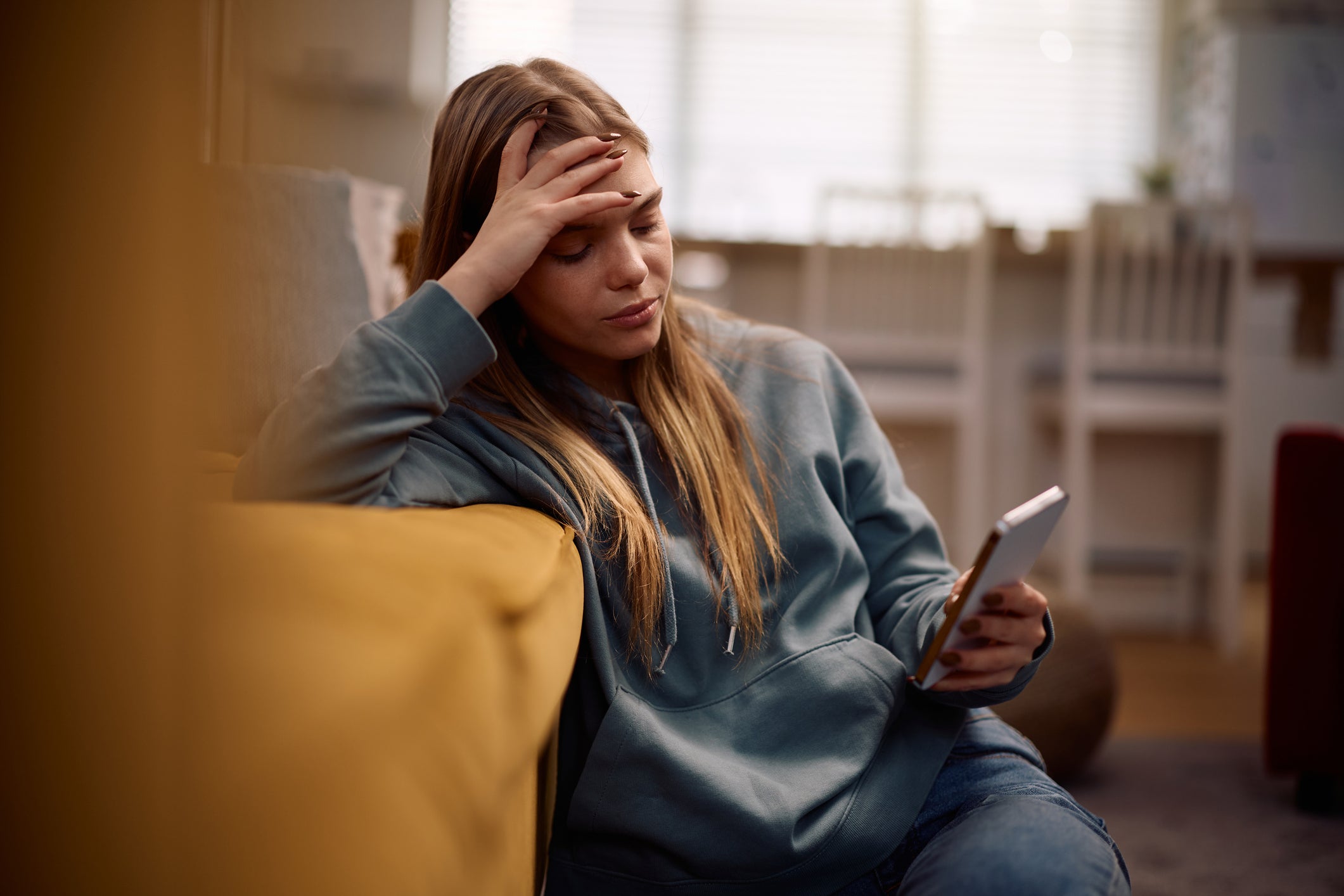Using text-based therapy could help ease mild-to-moderate depression, according to researchers at the University of Washington.
Symptoms improved for more than 400 adults following three months of weekly text therapy using the mental health platform Talkspace.
And the researchers found the text therapy was just as effective as weekly video-based therapy, using data from more than 400 adults in the new large-scale randomized trial.
“We found that patients improved at similar rates, regardless of whether they were communicating with their therapist through messaging or live video calls,” Dr. Patricia Areán, a former psychiatry professor at the University of Washington School of Medicine, said in a Thursday statement.
“This supports the use of text-based therapy as a viable, evidence-based way to treat the millions of Americans who experience depression every year.”

The use of text therapy has expanded over the past few years thanks to the influence of the Covid pandemic and a rise in popularity of telehealth sites such as BetterHelp. Some 200 million use TalkSpace.
Text therapy provides a more flexible option for people who would rather not hop on a video call or who want help from a qualified professional and have heavy time commitments. It also creates a record of interactions that can be reviewed by patients and therapists.
The strategy has been shown to be effective for years — but the question is how effective.
Recent studies have been encouraging, showing that text therapy is just as good as teletherapy at relieving symptoms of anxiety and depression and better than in-person therapy at treating people with depression.
Still, there have also been concerns about not having a therapist meeting face to face with a patient. They may, for example, miss signs that a person wanted to hurt themselves.

However, Areán told The New York Times that there were no adverse events in this trial and Adrian Aguilera, an associate professor at the University of California, Berkeley, told Time last year that the need for mental health services in the U.S. may outweigh those concerns.
“Is it the best? Probably not,” Aguilera said of text therapy.
“A better question is, ‘Can it meet an unmet need?’”
Just under a quarter of U.S. adults receive some form of mental health care, despite the face that more than one and five live with a mental illness.



0 Comments